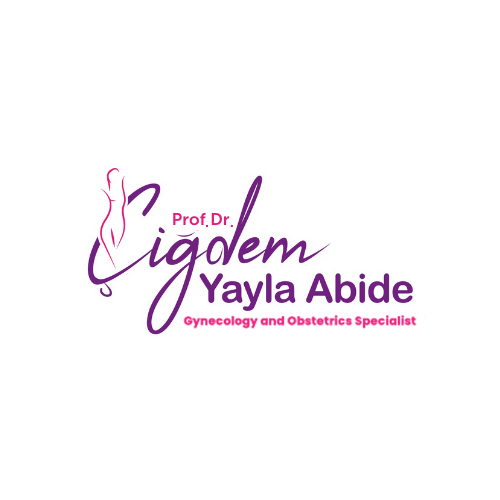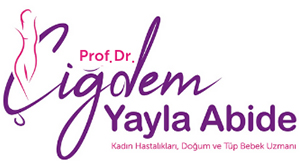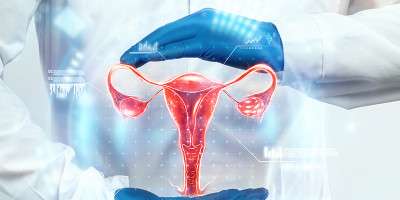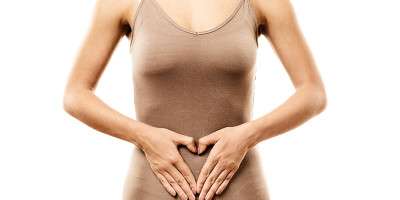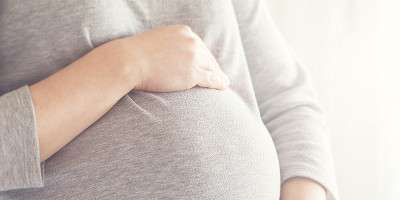What is Ovarian Reserve?
When women are born, there are approximately 4 million eggs in their ovaries (we can say thatthe egg reserve is 4 million). When puberty begins, the number of eggs decreases to 400,000 and an average of 1000 eggs are lost in each menstrual period. At the age of 30, the number of eggs is around 100,000. By mid-40 years of age, this number drops even further and the chances of getting pregnant decrease with age.
Ovarian reserverefers to the number and quality of eggs in a woman's ovaries, which determines her potential to become pregnant. The best tests that show the number and quality of eggs are AMH, FSH and egg count on ultrasound.
AMH, or anti-mullerian hormone, is a hormone secreted from small sacs (follicles) in the ovaries. As the number of follicles, i.e. eggs, decreases, AMH secretion also decreases.
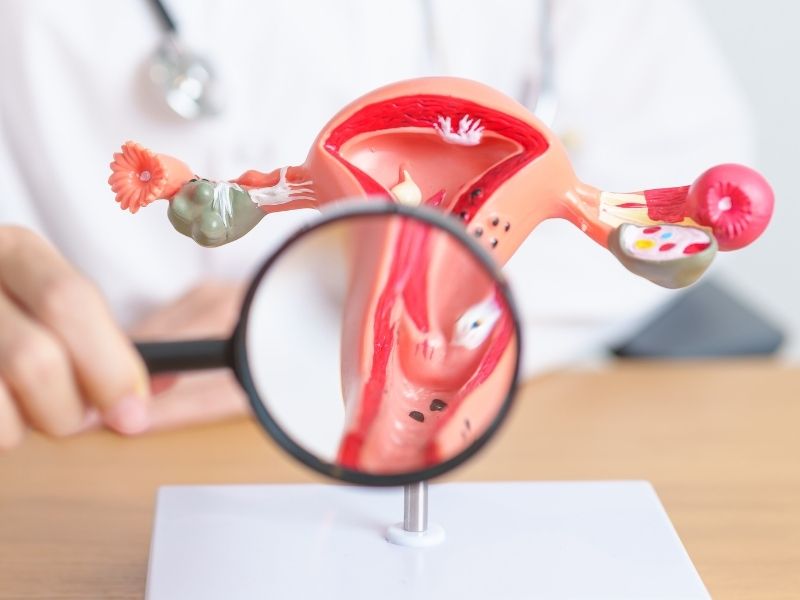
what is ovarian reserve
What is AMH (Anti-Müllerian Hormone)?
AMH (Anti-Müllerian Hormone) is a blood test used to determine ovarian function and ovarian reserve in women. It is a hormone released from the small follicle cells of the ovaries.
AMH levels give information about a woman's ovarian reserve. High AMH levels are usually associated with a large ovarian reserve and high fertility potential, while low AMH levels are associated with less ovarian reserve and reduced fertility potential.
The AMH test is an easy-to-administer blood hormone test and is often used for fertility assessment and determination of egg reserve before IVF treatment. AMH should not be used to predict menopausal status. AMH levels alone do not determine whether a woman can definitely get pregnant or not, they only give an idea of ovarian reserve. Other factors besides AMH levels can also have an impact on fertility, so fertility assessment usually involves a combination of several tests.
AMH indicates ovarian reserve and ovarian quality in IVF treatments, i.e. AMH indicates IVF success.
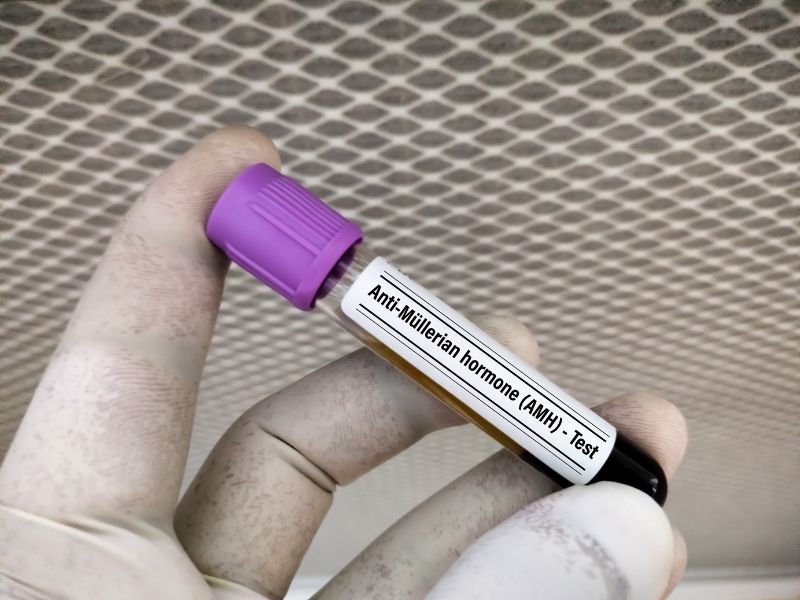
AMH (Anti-Müllerian Hormone)
What are Ovarian Reserve Tests?
Although the AMH test is an easy test that is analysed in the blood, it is one of the most important ovarian reserve tests that show ovarian reserve. The other ovarian reserve test is FSH, which is checked in the blood on the 2nd or 3rd day of menstruation, and the number of eggs checked on ultrasound. AMH is mainly checked before IVF treatments and shows the success of IVF treatment.
How to Understand Low Egg Count?
One of the most curious questions among women is ‘what shows the number of ovaries? ’. The parameters examined to evaluate the ovarian reserve are as follows;
- AMH Test: Lowovarian reserve is mentioned inlow AMH.
- FSH and Estradiol Test: FSH (Follicle stimulating hormone) is a hormone secreted from the pituitary gland in the brain and ensures the growth of eggs. The FSH test in the blood is performed to evaluate the ovarian reserve. FSH and estradiol hormones are checked on the 2nd or 3rd day of menstruation. FSH has the lowest values during this period. In normal ovarian reserve, FSH is expected to be low and estradiol is expected to be low. Low ovarian reserve should be considered in high FSH values.
- The number of eggs looked at ultrasound on the 2nd or 3rd day of menstruation; In order to say low ovarian reserve, the number of follicles measured between 2-9 mm in both ovaries should be below 7.
Why is the FSH Test Performed?
The FSH (Follicle Stimulating Hormone) test is a blood test used to assess a woman's fertility status. The main uses of FSH are as follows:
Fertility Assessment: FSH levels are used to assess a woman's ovarian reserve. High FSH levels may indicate decreased ovarian reserve or impairments in ovarian function.
Menopause Diagnosis: FSH levels can be used to confirm that a woman has entered menopause or to determine menopausal status. FSH levels of women in menopause are usually high.
Diagnosis of Ovarian Diseases: FSH levels can be helpful in diagnosing ovarian diseases, especially conditions such as polycystic ovary syndrome.
Infertility Assessment: FSH levels can be used to determine the causes of infertility. High FSH levels may be one of the factors contributing to infertility.
FSH testing is an important tool in determining a woman's fertility potential. However, its evaluation alone is often not sufficient and it is advisable to use it in combination with other tests. Tests performed under the supervision of a doctor and with correct interpretation can be helpful in assessing a woman's fertility status.
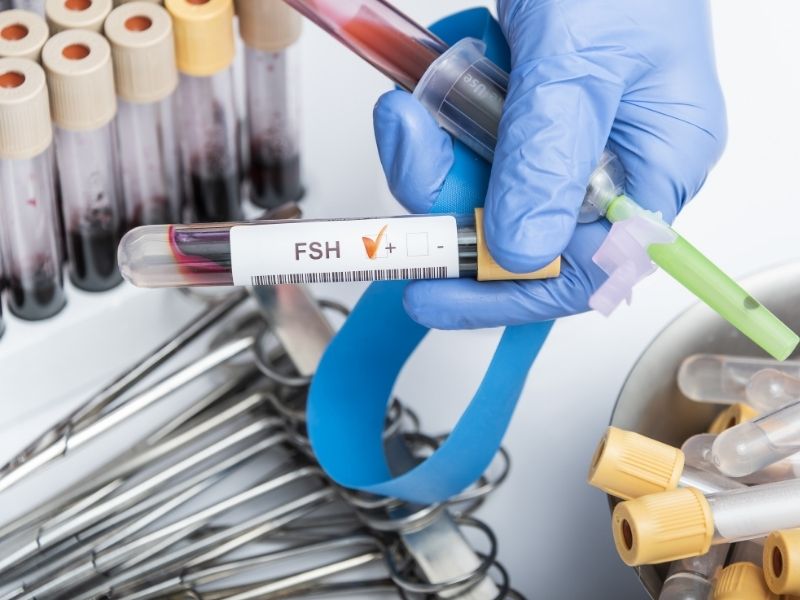
FSH Test
What is low ovarian reserve?
Low ovarian reserve (low ovarian reserve) is seen in 10-30% of couples who consult a doctor for infertility. Egg reserve is defined as the number and quality of eggs that determines a woman's fertility potential and decreases with age. Low ovarian reserve is an egg reserve that is below normal for a woman's age and fertility potential. Low ovarian reserve is usually associated with reduced ovarian function and is usually part of natural ageing, but can sometimes occur at an earlier age.
AMH (Anti-Müllerian Hormone) is a blood test used to determine a woman's ovarian reserve. Levels of AMH, a hormone released from the small follicle cells of the ovaries, provide information about a woman's ovarian reserve. Low AMH levels are often associated with low ovarian reserve and may indicate a reduced fertility potential. This can occur naturally with the ageing process, but can also sometimes be associated with factors such as hormonal imbalances or ovarian diseases.
What should be the normal value of AMH?
AMH (Anti-Müllerian Hormone) levels may vary in women according to age and individual factors. However, in general, it varies between 1.5 - 4 ng/ml in women of reproductive age. Although AMH alone is not sufficient in the diagnosis of low ovarian reserve, low ovarian reserve is mentioned if AMH <1.3 ng/ml. AMH <0.5 ng/ml is a very low value. If the AMH value is very low, early menopause may be considered.
If low AMH is detected before the age of 35 , egg freezing should be offered if the woman is single. If the woman is married, in vitro fertilisation should be offered.
If AMH is 4 ng/ml and above, polycystic ovary syndrome is suspected and if there is a desire for a child and the woman cannot conceive, assisted reproductive technologies should be used.
Why is AMH high in polycystic ovary syndrome?
Polycystic ovary syndrome (PCOS) is a condition in which follicle development in the ovaries is irregular and hormonal balance is disturbed. Women with polycystic ovary syndrome usually have too many follicles in their ovaries. In this case, Anti-Müllerian Hormone (AMH) levels are usually high.
AMH is a hormone released from the ovaries and helps to determine ovarian reserve. In women with polycystic ovary syndrome, the ovaries may produce more follicles than normal and this can lead to higher AMH levels. However, a high AMH value in women with PCOSdoes not necessarily mean that the ovarian reserve is increased. In fact, this may be a symptom of abnormal functioning of the ovaries and polycystic ovary syndrome can often cause fertility problems.
High AMH levels in women with PCOS are important for understanding the effects on ovarian function and fertility, but this alone is not a diagnostic tool. The diagnosis of PCOS is usually made in combination with other clinical signs and hormonal tests. In any case, treatment of women with polycystic ovary syndrome aims to manage symptoms, address fertility issues and keep other health problems under control. We therefore draw up an individualised treatment plan for our patients with polycystic ovary syndrome.
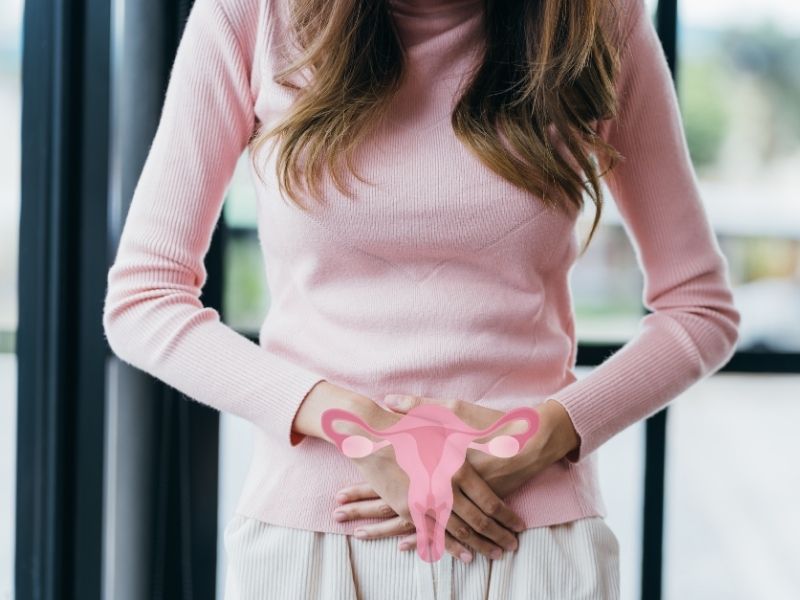
polycystic ovary syndrome
What reduces the egg reserve?
After the age of 35, the quantity and quality of eggs decrease, this decrease accelerates after the age of 37 and the AMH test, which shows ovarian reserve, shows a significant decrease. In some patients, ovarian reserve decreases rapidly and early regardless of age. Menopause before the age of 40 is called ‘early menopause’ or ‘early ovarian failure’ and early menopause occurs in 1% of patients. In this case, the cause of early menopause should be investigated.
Among the causes of low AMH:
- Ageing: The natural aging process can cause women's ovarian reserve to diminish and thus lower AMH levels.
- Genetic Factors: Some women may have a genetically lower ovarian reserve and this can lead to low AMH levels. Diseases such as Turner syndrome can also cause low AMH levels.
- Ovarian Diseases or Surgery: Surgical interventions on the ovary or ovarian diseases (ovarian cysts; such as endometriosis, endometrioma, chocolate cyst) can cause low AMH levels.
- Chemotherapy or radiotherapy: Chemotherapy or radiotherapy administered as cancer treatment can affect the ovaries, leading to decreased AMH levels.
- Autoimmune Diseases: Some autoimmune diseases can affect the ovaries and cause AMH levels to decrease.
- Smoking: Smoking can reduce ovarian reserve and cause AMH levels to decrease.
- Stress: It accelerates AMH decline. You can read our article titled Stress and IVF
- Alcohol Consumption: Alcohol can cause low AMH levels.
- Overweight, obesity, bad eating habits such as fast food: Fast food, packaged foods, nutrition rich in saturated fatty acids, excess caffeine consumption accelerate the decline of egg reserve (AMH decline).
A combination of these factors or other factors may also contribute to low AMH. Each case may be different from each other and it is important to consult a doctor for a correct diagnosis.
What is Early Ovarian Failure?
The cause of early menopause is not known exactly. It may also have a genetic cause. Prevention of early menopause is often not possible, but the effect of some factors can be reduced and it may be possible to delay the age of menopause. Here are some measures to prevent early menopause or delay early menopause:
- Maintaining a Healthy Lifestyle: Healthy lifestyle habits such as adopting a balanced diet, exercising regularly, not smoking and limiting alcohol consumption can naturally postpone the age of menopause.
- Adequate Calcium and Vitamin D Intake: Calcium and vitamin D are important for maintaining bone health and reducing the risk of osteoporosis. Therefore, attention should be paid to adequate intake of calcium and vitamin D.
- Controlling Hormone Levels: Imbalances in thyroid and other hormones can increase the risk of early menopause. Therefore, it is important to have hormone levels checked regularly and receive treatment if necessary.
- Assessing Ovarian Reserve: Tests such as AMH (Anti-Müllerian Hormone) can be performed to assess fertility potential. These tests can help determine the risk of low ovarian reserve or early menopause.
- Evaluating Treatment Options: Hormonal treatments, such as birth control pills, can be used to delay menopause. However, a doctor should be consulted about the long-term effects and risks of these treatments.
- Reducing Risk Factors: It is important to make efforts to reduce risk factors for early menopause, such as poor diet, obesity, stress, and exposure to environmental toxins.
Measures such as lifestyle changes and regular medical check-ups can be taken to prevent and postpone early menopause. However, in many cases it may not be possible to prevent early menopause and in this case the most appropriate treatment and support should be provided.
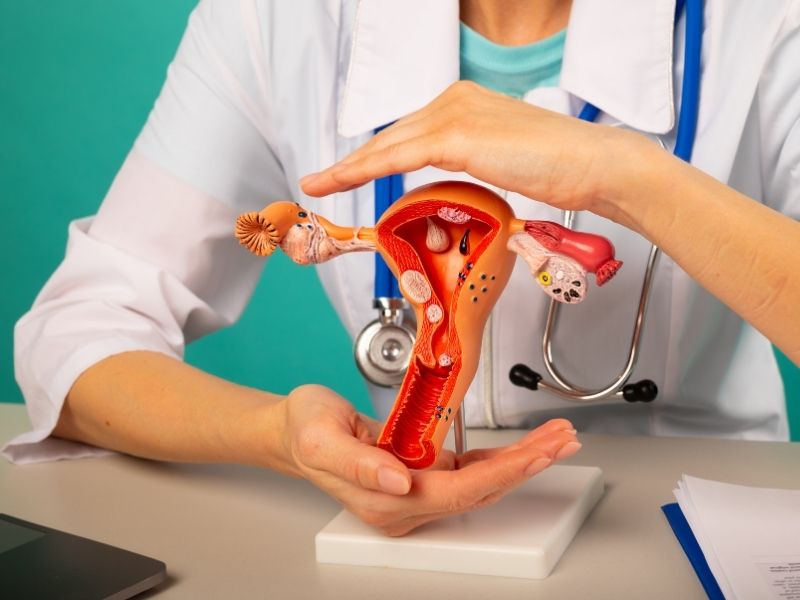
low ovarian reserve
What are the symptoms of low ovarian reserve?
Most of the time, women with low ovarian reserve do not show any symptoms. Although decreased ovarian reserve is usually not associated with obvious symptoms, some symptoms may be the following;
- Irregular Menstrual Cycles: Decreased ovarian reserve can cause irregular or frequent menstrual cycles.
- Infertility (Infertility): Decreased ovarian reserve can reduce the chance of pregnancy and cause infertility.
- Early Menopause Symptoms: Decreased ovarian reserve may be associated with symptoms of early menopause. These symptoms may include hot flushes, night sweats, decreased sexual desire and vaginal dryness.
- Hormonal Changes: Decreased ovarian reserve can cause hormonal changes and associated changes in mood, energy levels or skin and hair.
- Ovulation Disorders: Decreased ovarian reserve may be associated with irregular or anovulatory (non-ovulatory) menstrual cycles.
These symptoms may not always be associated with decreased ovarian reserve and may be signs of other health problems. Therefore, it is important to consult an experienced doctor, assess the symptoms and, if necessary, carry out appropriate tests.
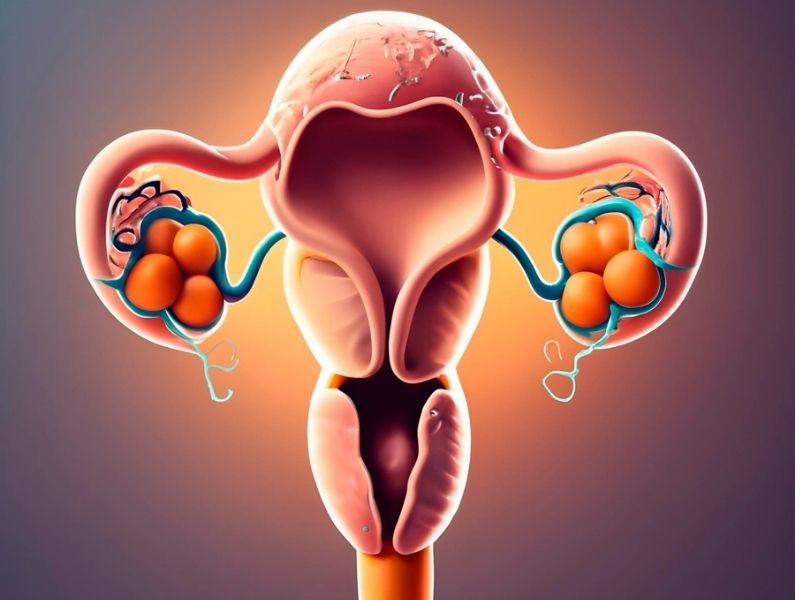
Low Egg Reserve
Treatment of Low Egg Reserve
There is no cure fordecreased ovarian reserveyet, but treatment recommendations may vary according to the underlying causes and the lifestyle of the person. A healthy diet, avoiding stress, avoiding bad habits such as smoking and alcohol can slow down the decrease in ovarian reserve. The treatment plan for low AMH is usually determined by a reproductive endocrinologist or a fertility specialist and is customised depending on the individual situation.
However, the following methods are usually used in the treatment of low ovarian reserve:
- Drugs to Increase Egg Reserve: Hormone-containing drugs can be used to increase the egg reserve. These drugs usually help to increase the ovarian reserve by increasing follicle development (In fact, it is not the reserve that increases, it is the number of eggs that exist and develop in the ovaries). In patients with low ovarian reserve, we recommend in vitro fertilisation or egg freezing to increase the number of developing eggs and to collect the maximum number of eggs.
- Monitoring ovarian reserve: Your doctor may order regular blood tests (such as AMH, FSH, Estradiol) and imaging tests such as ultrasonography to monitor ovarian reserve. This is important to monitor the effectiveness of treatment.
- Ovarian Reserve Evaluation: Women with low ovarian reserve are usually referred for a more detailed evaluation by reproductive endocrinologists or fertility specialists. This evaluation may include various tests to determine ovarian function and reserve in more detail.
- Assisted Reproductive Techniques: Women with low egg reserve may need assisted reproductive techniques such as in vitro fertilisation. In these techniques, drugs and procedures can be used to stimulate the ovaries to produce more eggs or to take eggs from outside.
- Fertility counselling and support: Emotional and psychological support is important for women with low egg reserve. Fertility counselling or support groups can help reduce the stress experienced during this process and support one's emotional health. This support is also important during in vitro fertilisation with low ovarian reserve.
The treatment plan will vary depending on the individual's specific situation and goals. It is therefore important to collaborate with a reproductive specialist to determine the right treatment.
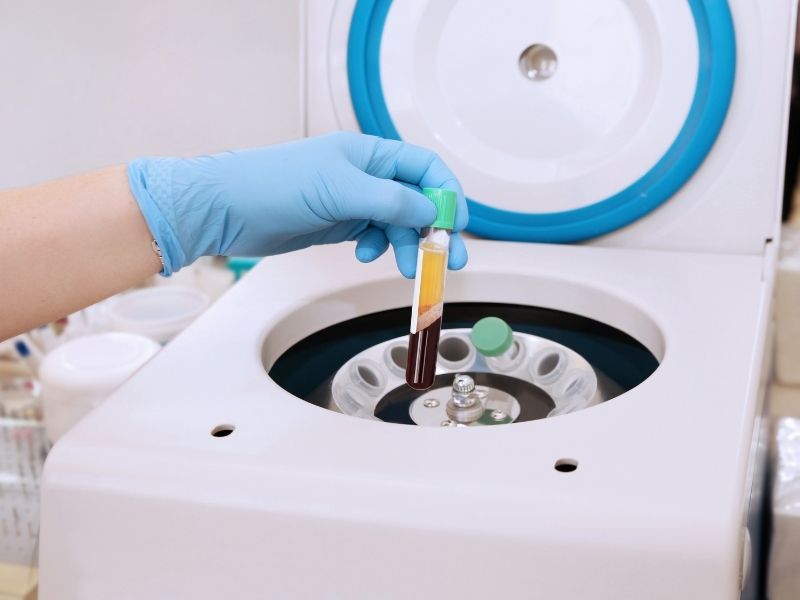
PRP Treatment for Women with Low Egg Reserve
PRP Treatment for Women with Low Egg Reserve
PRP (Platelet-Rich Plasma) treatment, which is applied to women withlow egg reserve and premature aging of the eggs, is an experimental treatment method to increase ovarian function or to awaken and revitalise sleeping cells. PRP method for egg rejuvenation is now frequently applied in our country. PRP is a type of plasma obtained from the person's own blood and in which platelets (blood platelets) are concentrated.
PRP treatment for egg rejuvenation usually includes the following steps;
- Blood Collection: A blood sample is taken from the patient's arm.
- PRP Preparation: The blood is separated by centrifugation and PRP is obtained by concentrating platelets.
- Injection: The PRP obtained is injected into the ovaries. These injections can be performed under ultrasound guidance or by surgical procedures such as laparoscopy.
The aims of PRP treatment can be the following:
- Improvement and revitalisation of ovarian tissue,
- Increasing ovarian function,
- Improvingfollicle developmentand egg quality.
However, PRP treatment in women with low egg reserve is not yet a widely used and scientifically proven treatment method. Therefore, more research is needed on the efficacy, safety and long-term results of PRP treatment.
As with any treatment option, PRP treatment for low AMH should be performed under the supervision and recommendation of a doctor. Women with low egg reserve should talk to their fertility specialist or reproductive endocrinologist to determine the most appropriate treatment options.
What is Exosome Therapy for Women with Low Egg Reserve?
Exosome therapy to the ovaries is an experimental treatment method being investigated to improve reproductive health or support ovarian function in women with low egg reserve. Ovarian exosome therapy uses exosomes, which are small cellular vesicles secreted by cells. Exosomes contribute to various biological processes by transferring genetic material, proteins and other molecules between cells. Ovarian exosome therapy is administered by injection into the ovaries. However, further research on the efficacy and safety of infertility and exosome therapy is required, and as it is currently in an experimental phase, it should not be used without consulting a reproductive and endocrinologicalspecialist.

Ovarian Rejuvenation Method
What is the ovarian rejuvenation method? What is the Success of Egg Rejuvenation?
The ovaries have the highest number of eggs when they are in the fetus period at the 20th week in the womb. The number of eggs that decreases until birth continues to decrease after birth and after menopause, the eggs are now exhausted. The decrease in the number of eggs accelerates especially around the age of 37. The rate of depletion of the ovarian reserve is different in each woman and is influenced by many factors.
Many studies have reported that stem cell therapies slow down ovarian aging (decrease in ovarian reserve) and rejuvenate the ovaries (increase the number and quality of eggs).
Stem cells are the precursors of mature cells in the body and can transform into different cell types with a suitable stimulus. In women, stem cells are also found in the ovaries. PRP, which is derived from one's own blood, contains platelet-rich growth factors and when injected into the ovaries, it can activate stem cells and stimulate their transformation into egg cells. In this way, it can increase fertility potential by increasing egg production. The goal of ovarian rejuvenation treatments is the activation of stem cells.
Treatments such as PRP, exosomes, antioxidants can be used in ovarian rejuvenation. PRP (platelet rich plasma) provides tissue regeneration and rejuvenation by stimulating stem cells. The use of PRP in infertility treatment is promising and aims to stimulate the dormant ovaries to regenerate. The use of PRP for ovaries in infertility can increase the chance of pregnancy. PRP is also used for ovarian rejuvenation in infertility and to improve the problems of the inner tissue of the uterus. It has been reported in many studies that platelet-rich blood (PRP) obtained from the patient's own blood improves ovarian reserve and improves egg quality, but its benefit has not yet been proven 100%.
Istanbul Egg Rejuvenation Price
We provide services with our contracted laboratory for services such as IVF egg rejuvenation, infertility treatment and PRP offered in our Dr. Çiğdem Yayla Abide Clinic in Ataşehir, Istanbul. We welcome our patients to our clinic to meet our team specialised in fertility and to get detailed information. We serve our patients using the latest technologies. For more information about treatment options and pricing, please call our clinic and arrange an initial consultation. We are here to create the most suitable treatment plan for you!
The AMH value plays an important role in the assessment of fertility. By measuring the anti-mullerian hormone level, information about ovarian reserve is provided. AMH value is considered high if it is above 4ng/ml, normal if it is between 1.5 - 4 ng/ml, and low if it is below 1.5 ng/ml. Shortening between menstrual periods and menstrual bleeding intensity can be shown as a sign of low AMH. Low AMH can lead to early menopause. A low AMH value indicates a low number of eggs. It cannot be said that the egg is of poor quality. IVF can be performed even if AMH is low. You can have an AMH test when you are menstruating or not menstruating. The AMH test does not require a specific period. Stress affects AMH. Since ovarian functions are managed from the brain, the hormones prolactin and cortisol stop reproduction and ovulation in case of stress. The AMH level increases until the age of 25 and reaches its highest value at the age of 25, after which it starts to decrease. After menopause, it becomes undetectable. Low ovarian reserve means that the number and quality of eggs in the ovaries are decreasing. A woman with low ovarian reserve can get pregnant spontaneously, but since we do not know how long the eggs in the ovaries will be exhausted, it is necessary to act a little faster. In other words, conception should not be postponed in case of low AMH. For this purpose, we can recommend special treatments and in vitro fertilisation for low ovarian reserve. Some egg quality enhancing drugs are available on the market. Although it is not proven, we can recommend some supportive therapies. Single women with low ovarian reserve who do not plan pregnancy yet can do egg freezing. When they want pregnancy in the future, they have the chance to thaw the frozen eggs and become pregnant. The AMH test can be checked on any day regardless of menstruation, fasting and satiety are not important. Unlike men, women cannot produce eggs. Women are born with a certain egg pool and this pool gradually decreases over time, although at a different rate in each woman, and is completely depleted in menopause. There is currently no method that can increase the decreased AMH value (ovarian reserve). There is no low egg reserve cure that can cure low ovarian reserve. I recommend that you consult your doctor before using different cures at home. Using cures that you do not know will not benefit you and may also harm you.Is the AMH value important?
How much should the AMH value be?
What are the symptoms of low AMH?
What does low AMH cause?
Is it possible to have an AMH test during menstruation?
Does stress affect AMH?
Does AMH suddenly drop?
What Does a Low AMH Test Mean? My AMH test was low, can't I get pregnant on my own? What happens if AMH is low?
Is AMH Test Performed During Menstruation? When should the AMH test be done?
Is AMH Value Increased?
What is Good for Egg Reserve? Is there a cure for egg reserve?
